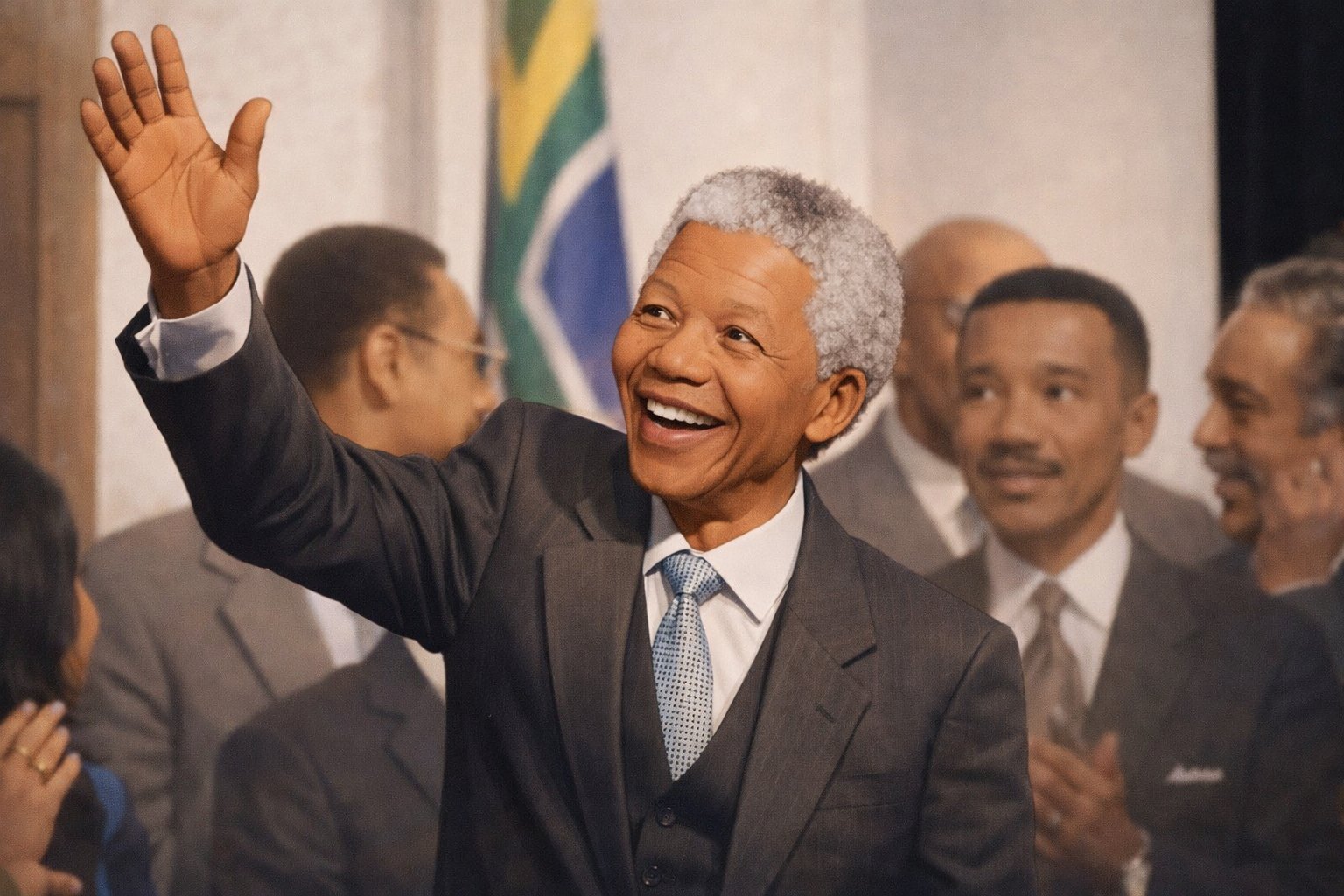On 18 July 1918, in the tiny village of Mvezo in South Africa’s Eastern Cape, a boy was born to a Thembu chief.
He was named Rolihlahla, a Xhosa word that meant “pulling the branch of a tree,” or, as some liked to say, “troublemaker.” Few could know how prophetic that name would be.
At the village school, his teacher gave him an English name: Nelson. It was part of the colonial system — but it also gave him an identity that would one day echo around the world.
A Boy Who Believed in Justice
Mandela grew up herding cattle, listening to elders’ stories of resistance against colonial wars. The sense of justice took root early. He later said:
“No one is born hating another person because of the colour of his skin, or his background, or his religion. People must learn to hate, and if they can learn to hate, they can be taught to love.”
At Fort Hare University, he was suspended for joining a student protest. Even then, he was learning that standing for what is right often came at a price.
Johannesburg and the Awakening
Mandela fled to Johannesburg to avoid an arranged marriage, working first as a night watchman, then as a law clerk. The city opened his eyes to the brutal realities of apartheid — the legalized system of racial segregation.
He studied law by day and joined the African National Congress (ANC) by night. Soon he was organizing boycotts, strikes, and protests.
“Courage is not the absence of fear — it’s inspiring others to move beyond it.”
From Lawyer to Freedom Fighter
In 1961, after years of peaceful protest met with violence, Mandela co-founded Umkhonto we Sizwe (“Spear of the Nation”), the ANC’s armed wing. It was a painful decision, but he believed non-violence alone was no longer enough.
In 1962, he was arrested, and two years later, during the Rivonia Trial, he stood before the court and declared:
“I have fought against white domination, and I have fought against black domination. I have cherished the ideal of a democratic and free society…It is an ideal for which I am prepared to die.”
The court sentenced him to life imprisonment.
The Prison Years
For 27 years, Mandela lived behind bars — 18 of them on Robben Island, where he broke rocks under a blinding sun and slept in a small cell with nothing but a mat on the floor.
But he refused to let prison break him. He read, studied law, mentored younger prisoners, and even negotiated secretly with the apartheid government. He emerged with dignity, not bitterness.
“Resentment is like drinking poison and then hoping it will kill your enemies.”
Freedom and Forgiveness
In 1990, Mandela walked free. The world watched as he raised his fist in triumph — not as a man seeking revenge, but as a leader ready to heal a nation.
Four years later, he became South Africa’s first Black president, leading the country through reconciliation rather than retribution. He invited his former jailers to his inauguration.
“Courageous people do not fear forgiving, for the sake of peace.”
The Elder Statesman
Mandela stepped down after a single term, showing the world that true power lies in service, not in clinging to office.
In his later years, he became a global symbol of peace, appearing at concerts, summits, and even sporting events, always with that warm smile that disarmed kings and children alike.
“I never lose. I either win or learn.”
He passed away on 5 December 2013, leaving behind a world forever changed.
The Legacy of Madiba
To his people, he was Madiba — the clan name they used with love. To the world, he remains a reminder that one life, anchored in justice and forgiveness, can rewrite a nation’s destiny.
“What counts in life is not the mere fact that we have lived.
It is what difference we have made to the lives of others that will determine the significance of the life we lead.”
“I have cherished the ideal of a democratic and free society in which all persons live together in harmony and with equal opportunities. It is an ideal which I hope to live for and to achieve. But if needs be, it is an ideal for which I am prepared to die.” — Rivonia Trial Speech, 1964
“Education is the most powerful weapon which you can use to change the world.”
“Live life as though nobody is watching, and express yourself as though everyone is listening.”
“There is no easy walk to freedom anywhere, and many of us will have to pass through the valley of the shadow of death again and again before we reach the mountaintop of our desires”
